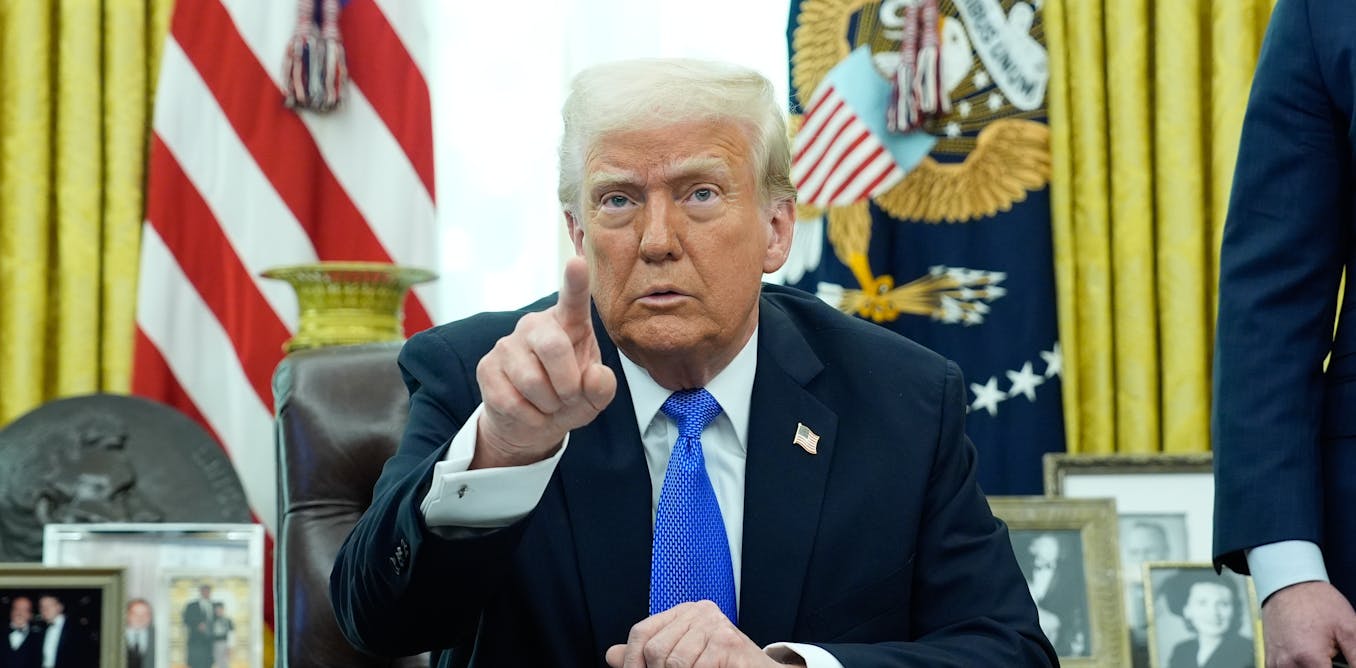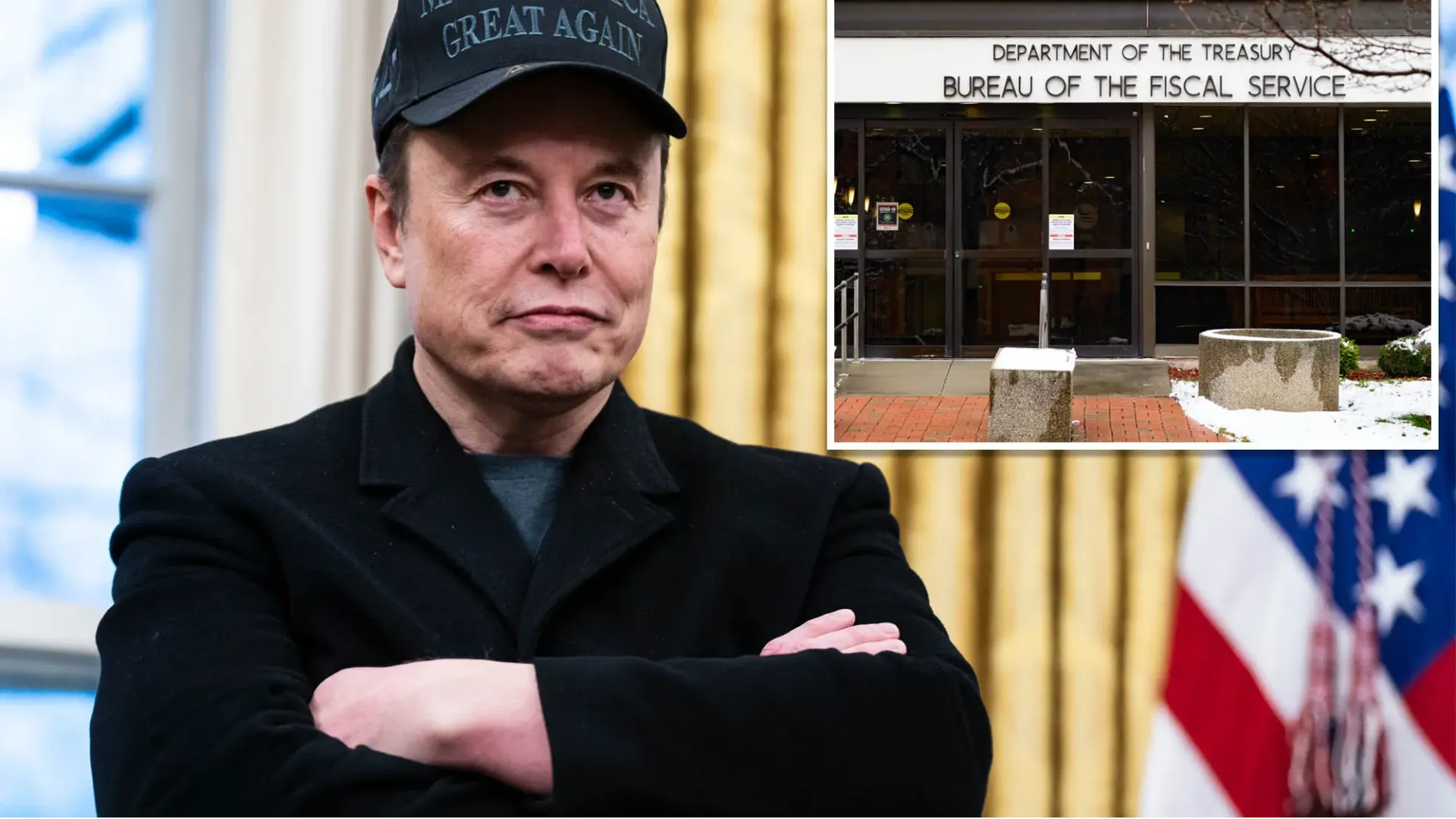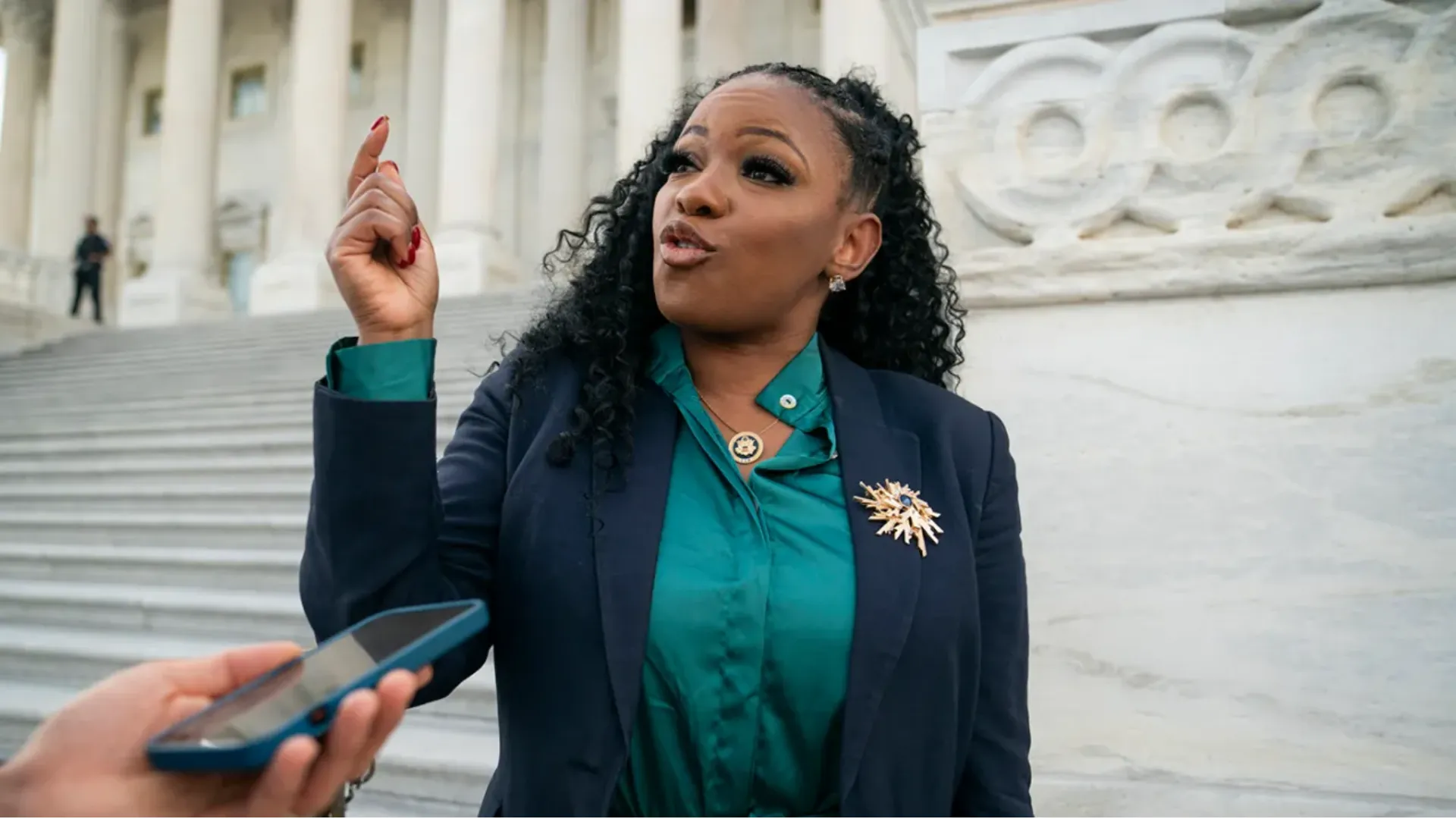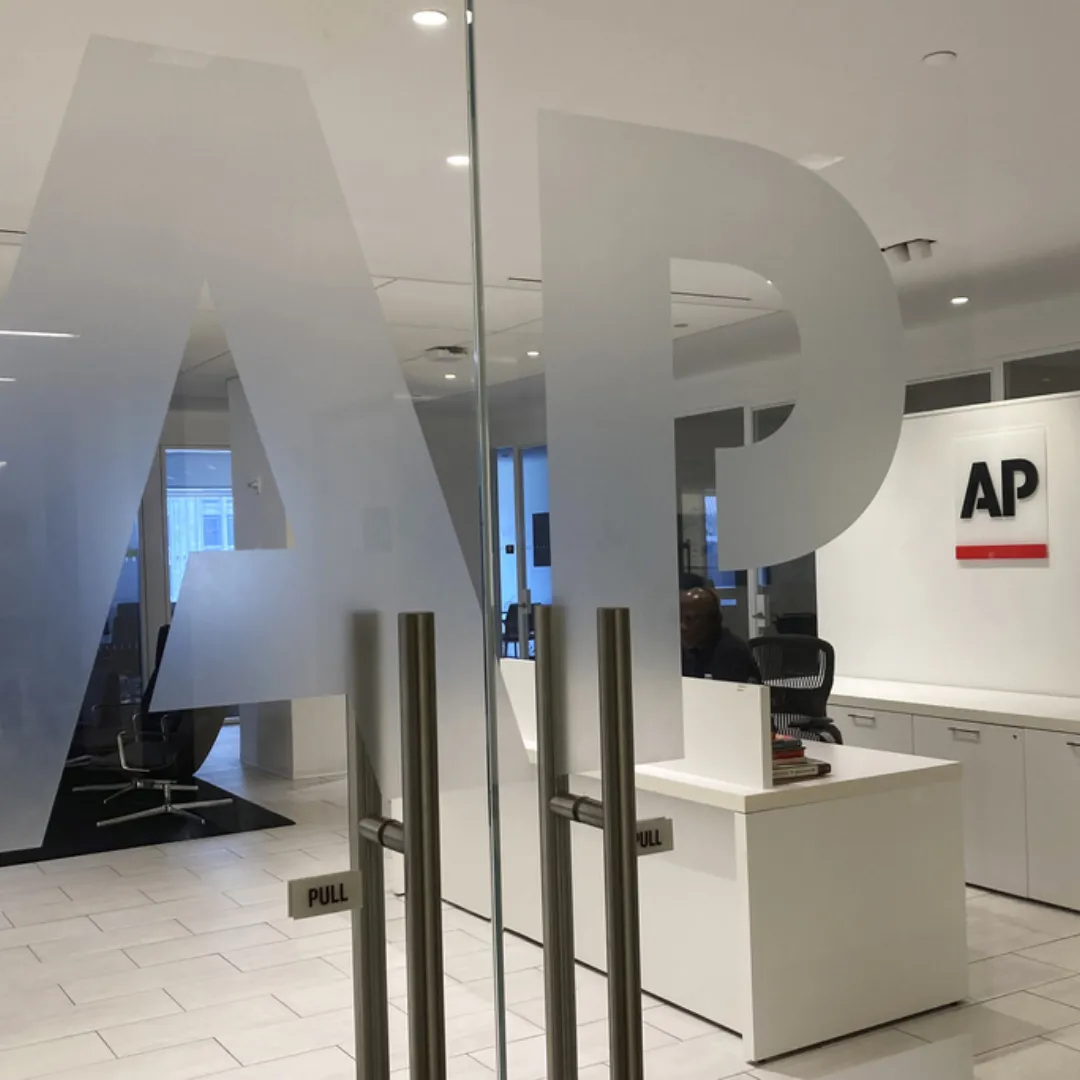
As President Donald Trump’s second term charges forward with unprecedented assertions of executive power, some of the Democratic Party’s most vital institutions are preparing for a future in which they may find themselves criminally investigated or prosecuted by federal agencies.
In a climate thick with accusations, executive orders, and threats of legal action, organizations like ActBlue and Indivisible—two pillars of Democratic fundraising and protest organizing—are taking proactive steps to shield themselves from what many are calling a campaign of political retaliation.
The alarm was sounded after Trump administration officials and close allies, including Elon Musk and members of Congress, began publicly suggesting that groups affiliated with the Democratic Party had engaged in illegal activity and should be subject to federal investigation.
While no formal charges have been filed to date, legal representatives for both ActBlue and Indivisible confirmed that they are working with attorneys and bracing for potential federal probes into their operations.
“Every one of our clients is concerned about being arbitrarily targeted by the Trump administration,” said Ezra Reese, political law chair at Elias Law Group, which represents a broad array of Democratic candidates and committees. “We are going to great lengths to help clients prepare for or defend themselves.”
Though the FBI declined to comment on any pending investigations, White House press secretary Karoline Leavitt offered a statement that stopped well short of denying such probes were in the works.
“Anyone who has not broken the law should not be worried,” Leavitt said. “If you have broken the law and engaged in the weaponization of justice, then you should be worried. It’s that simple.”
But for critics of the administration, that sentiment embodies a growing authoritarian posture in which political disagreements and activism can be recast as criminal behavior.
The targeting of Democratic-aligned groups through federal power, they say, represents a dangerous escalation and a fundamental challenge to First Amendment protections.
One of the key targets of this growing campaign appears to be Indivisible, a grassroots protest movement that has served as a mobilization engine for the Democratic resistance since Trump’s return to power.
The organization, which operates chapters in all 50 states, has hosted more than 1,000 protests this year alone and has been at the center of the recent Hands Off! demonstrations, which drew hundreds of thousands of participants across the country.
Indivisible co-founder Ezra Levin acknowledged that his group is bracing for the possibility of criminal charges—not because of any known wrongdoing, but because of the political climate created by the Trump administration and its surrogates.
“They may try to come at us directly,” Levin said. “Or it’s as likely that their non-state actors are inspired by their lies and propaganda, and try to come at us individually. And that is a risk in a moment where you’re facing anti-democratic threats like we are.”
Indivisible’s leadership has recently distributed protest guides that advise activists on how to demonstrate outside Tesla dealerships—Elon Musk’s flagship business—while explicitly instructing participants to remain peaceful and avoid private property.
Still, Musk has called Indivisible “criminals” and accused them of inciting violence after a string of attacks on Tesla property, despite there being no known connection between the organization’s actions and those incidents.
In Levin’s view, the administration’s threats and rhetoric aren’t just chilling—they’re strategic.
“Our choice is, we can be quiet and hope that they won’t target us, or we can try to work as a mass opposition,” Levin said. “If you’re not willing to do that, what are you doing here?”
Meanwhile, ActBlue—an online fundraising platform that has become essential to Democratic campaigns—is preparing for an entirely different kind of attack: a federal investigation into its financial operations.
Multiple Republican lawmakers, including Representatives Darrell Issa of California and Andy Biggs of Arizona, have sent letters to the FBI and Treasury Department urging investigations into the platform, alleging violations of campaign finance laws and links to foreign donations.
“I think the FBI’s going to do something on ActBlue soon,” said Charlie Kirk, founder of Turning Point USA and a vocal Trump ally, at a recent conservative conference in Wisconsin.
ActBlue is already cooperating with a congressional investigation led by House Republicans and has submitted documents related to its fundraising practices. Two staff members are expected to testify behind closed doors later this month.
At the same time, the organization is bracing for a broader campaign to paint it as a corrupt entity, despite the lack of concrete evidence of wrongdoing.
Rep. Biggs claimed in his letter to the FBI that ActBlue was being used “to skirt the integrity of federal campaign finance laws” and enable foreign nationals to illegally contribute to U.S. elections. “It must be emphasized that these allegations, were they to prove true, would indicate a serious threat to the integrity of our elections,” he wrote.
ActBlue denied the allegations and stressed its commitment to transparency and legal compliance. The platform, which serves as a passthrough for donations to Democratic candidates and charges a flat processing fee, reported raising over $400 million in the first quarter of 2025—a record high.
“These unfounded attacks haven’t shaken us—they’ve sharpened our resolve to fuel Democratic wins,” said ActBlue spokesperson Megan Hughes. “Democratic grassroots donors are engaged, undeterred and ready to meet this moment.”
The legal threats come as part of a broader push by Trump to expand executive power and take direct action against critics, dissidents, and former officials who have spoken out against him.
In a dramatic move last month, Trump signed an executive order instructing the Department of Justice to investigate Miles Taylor, a former Department of Homeland Security official who wrote a scathing anonymous book criticizing Trump’s first term. Trump accused Taylor of treason, a crime that can carry the death penalty.
In a controversial speech at the Department of Justice just days before signing the order, Trump declared himself the country’s “chief law enforcement officer”—a title normally reserved for the attorney general.
The move drew outrage from constitutional scholars and civil liberties organizations, who say Trump is reshaping the executive branch to pursue political retribution under the guise of law enforcement.
Matt Schlapp, president of the American Conservative Union, defended the administration’s actions, arguing that Democrats must face consequences for what Trump and his supporters view as politically motivated investigations into the former president.
“Someone needs to get burned for all this activity or they’re just gonna do it again,” Schlapp said. “And that’s not hypocrisy; that’s justice.”
This framing—that the Trump administration is simply retaliating for what they consider years of political persecution—has become a central justification for their efforts.
Four criminal prosecutions have been filed against Trump since 2023, one of which resulted in felony convictions in New York. Despite there being no evidence that President Biden had any involvement in those cases, Republicans continue to claim they were driven by political bias.
For Democratic groups, the current climate is reminiscent of past eras when political expression and organizing were treated as subversive threats rather than protected rights. The comparison to Nixon’s enemies list and the McCarthy-era loyalty purges is not lost on progressive leaders and legal scholars.
The American Civil Liberties Union and other advocacy groups are tracking developments closely and preparing legal challenges should federal investigations into ActBlue, Indivisible, or similar organizations move forward.
“This is what authoritarianism looks like,” said a senior ACLU attorney, who spoke on condition of anonymity. “The use of state power to investigate, harass, or criminalize political opponents is not just anti-democratic—it’s dangerous.”
The legal framework around political investigations is complex. While the government has the right to investigate financial misconduct or criminal activity, such investigations must be rooted in evidence—not ideology.
If political motivations are driving the Trump administration’s legal threats, civil rights organizations say it could amount to abuse of power and violations of the First Amendment.
Adding to the controversy, Associated Press filed a lawsuit this week against White House officials, including press secretary Karoline Leavitt, alleging violations of the First and Fifth Amendments.
The lawsuit accuses the administration of retaliating against the AP for refusing to comply with a bizarre executive order instructing media outlets to refer to the Gulf of Mexico as the “Gulf of America.”
Leavitt, already under fire for her comments about ActBlue and Indivisible, dismissed the lawsuit as “grandstanding.”
With the 2026 midterms on the horizon, Democratic groups like ActBlue and Indivisible will likely play a crucial role in shaping voter turnout and political messaging.
Whether the Trump administration succeeds in dampening their influence through legal action remains to be seen. But one thing is clear: the legal and political battles are heating up, and the stakes have rarely been higher.
For now, the question remains: Will these legal threats become a new norm in American politics? Or will courts, voters, and institutions push back against what critics say is an effort to weaponize the federal government against political opposition?
As Ezra Levin put it, “If we let them silence us, they win. But if we stand together—loud, proud, and prepared—we have a shot at defending democracy from those trying to tear it down.”








